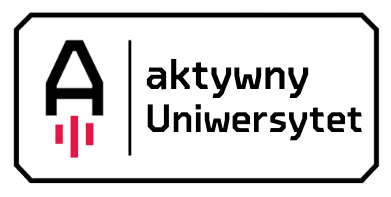Research areas
(1) Doctoral Degrees
Pomeranian University in Słupsk has the right to confer doctoral degrees (PhD) in the following disciplines:
- history,
- literature,
- languages.
- biological sciences,
- security sciences,
- medical sciences,
- security law sciences.
There are two paths to obtain a doctorate: doctoral college (school) and individual doctorate. In doctoral colleges, each doctoral student will receive a scholarship, regardless of their citizenship. All doctoral colleges are tuition-free, also for foreign applicants. Foreigners are free to take up and continue studies and participate in scientific research and training projects and schemes on the same terms as Polish citizens if they:
- hold a residence permit,
- have refugee status granted by the Republic of Poland,
- have been granted temporary protection in the territory of the Republic of Poland,
- are migrant workers – EU/EEA national, formerly or currently employed in Poland; this right extends also to members of their families if residing in the territory of the Republic of Poland, citizens of the EU Member States or the EFTA States that are members of the European Economic Area Treaty, as well as members of their families, who have means sufficient to cover their living costs during the period of study; however, they are not eligible for need-based scholarships.
Source: NAWA
External link (click here)
(2) Doctoral College (School)
Pomeranian University in Słupsk runs a Doctoral School and offers education in the four disciplines in which the University has the right to confer doctoral degrees.
Doctoral School at Pomeranian University in Słupsk
Head: professor Daniel Kalinowski
E-mal: daniel.kalinowski@upsl.edu.pl
Address:ul. Kozietulskiego 6-7 room 84
76-200 Słupsk, Poland
Website - click here
General admission requirements:
- a diploma in one of the disciplines in which the Doctoral School offers its education,
- proof of modern foreign language proficiency,
- academic publications: monographs, book chapters, papers and reviews in peer-reviewed journals,
- participation in national and international conferences,
- research proposal with an indication of the research area and an outline of the research problem,
- holding a grant awarded in a competition procedure.
Specific admission requirements → see Admissions Office (more information here)
(3) Research Areas
Our scholars carry out a variety of research in different disciplines in the following research areas:
- humanities (literary studies, history, linguistics, philosophy, art studies, culture and religious studies),
- social sciences (security studies, social sciences, legal sciences, pedagogy, management and quality studies, economics and finance, politics and administration studies, social and economic geography and spatial planning, psychology),
- engineering and technical sciences (civil engineering and transport),
- exact and natural sciences (biological sciences, Earth and environment sciences, mathematics, computer science, physical sciences),
- medical and health sciences (medical studies, health sciences, physical culture sciences),
- theological sciences (theological studies).
An outline of specific research areas is provided on the websites of individual institutes and departments (List of institutes and departments can be found here.
You can
follow the achievements of some of our scholars through Google
Scholar (click here or here) or one of the services, e.g. ResearchGate
(click here).
(4) Recent research projects
Herbarium Pomeranicum
The aim of the project is to digitize and make available on-line the resources of Pomeranian herbaria. Following the implementation of the project, the costs of access to the resources of herbaria will be reduced and access to the achievements of Polish researchers will improve. One of the goals is to provide on-line information on the resources of herbaria for public services and entities dealing with environmental resources management. As a result of the project, 468,000 specimens will be digitized and made available on the Internet, which will enable all stakeholders to access Herbarium Pomeranicum resources from any device. Access to the resources of Herbarium Pomeranicum will be immediate, and the ability to filter search results will completely eliminate the time-consuming query procedure performed in the traditional form.
(Source: herbariumpomeranicum.pl)
External link (click here)
eCUDO.pl (Oceanographic Data and Information System)
The eCUDO project aims to launch the potential of oceanographic data that are collected during monitoring and scientific research carried out by project partners. The results of these observations are cataloged in a transparent and publicly accessible database. Integrating and centralizing this data will replace the current system that requires customers to browse separate IT systems or order personalized expert analyzes.
(Source: eCUDO.pl)
External link (click here)





